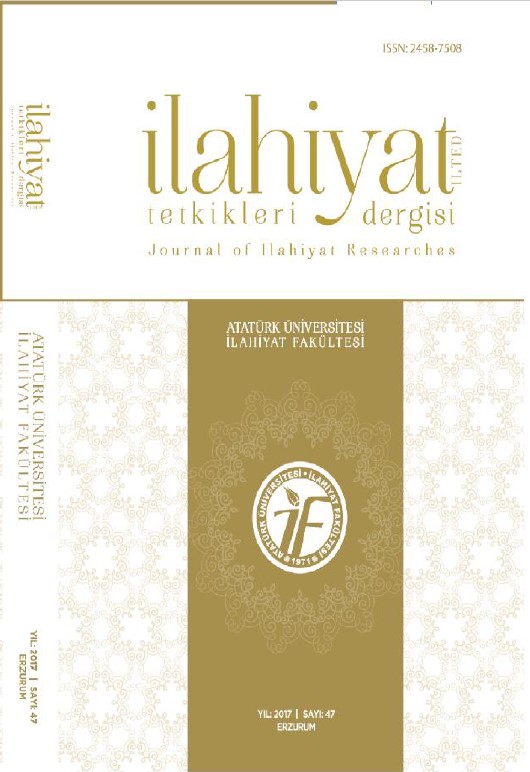Din-Ahlâk İlişkisi Bakımından İslâm Erdem Etiği Tasnif Denemesi
The Classification Study of Islamic Virtue Ethics in Terms of The Relationship Between Religion and Morality
Author(s): Fatma YüceSubject(s): Ethics / Practical Philosophy, Islam studies, Philosophy of Religion
Published by: Atatürk Üniversitesi İlahiyat Fakültesi
Keywords: Philosophy of Religion; Relation between Religion and Morality; Islamic Virtue Ethics; Humanistic Virtues; Islamic Virtues;
Summary/Abstract: The relationship between religion and morality is one of the most important issues in the philosophy of religion. In this study, the relation between religion and morality is examined through Islamic virtue ethics. Within this scope, at first, ten essential virtues are proposed according to their positions related to the self and the other. Justice, wisdom, moderation, and courage, which are the four basic virtues of the ten essential virtues, have been entitled as the initial virtues; sincerity, love, respect and trust, which are the four central virtues of the ten essential virtues, have been entitled as the process virtues, and finally compassion and generosity, which are the two superior virtues of the ten essential virtues, have been entitled as the result virtues. Afterwards, the Islamic background of these virtues was researched. Based on this research, justice, hikma (hidden cause), chastity, bravery, ikhlās (sincere commitment), fondness, takwā (piety), belief, mercy, and beneficence are proposed as the ten essential Islamic virtues. It is seen that Islamic virtues enrich and improve the meaning of humanistic virtues. As a result, it is deduced that religion and morality are independent but consistent, so the relationship between them is a free compatibility.
Journal: İlahiyat Tetkikleri Dergisi
- Issue Year: 2021
- Issue No: 55
- Page Range: 251-275
- Page Count: 25
- Language: Turkish

